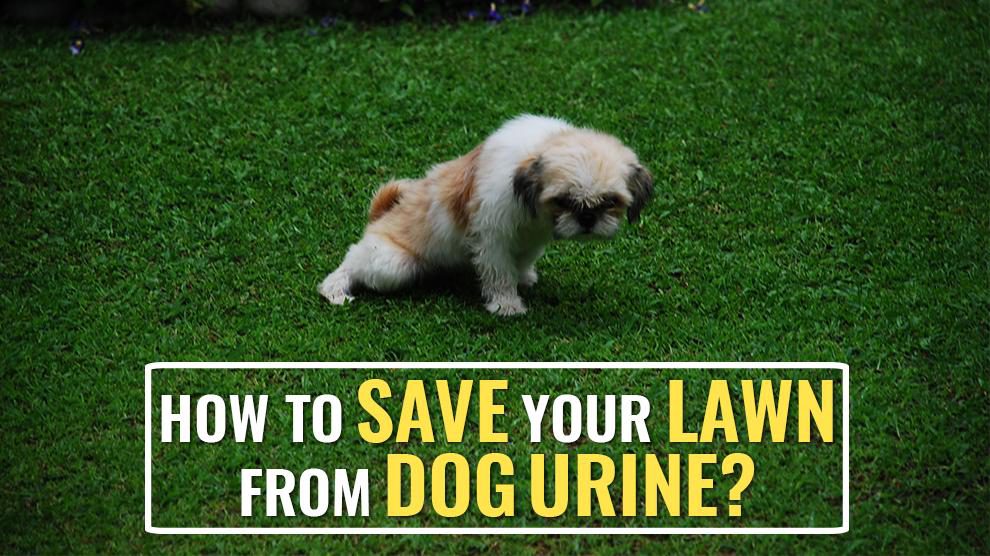For dog lovers who love their lawn, it can be hard to witness nitrogen burnt grass where their pet just go about doing their business.
Dog urine can damage the grass and create yellow or brown spots of dead grass. Some dog enthusiasts believe that it’s something part of their life.
There is a solution to this recurring problem. Take these simple and powerful steps and keep your lawn in pristine condition.
Why Does Canine Urine Damage Lawn?
Grass literally turns yellow where canines urinate. First, you should understand why this thing happens so that you can prevent it.
While nitrogen is part of healthy soil, strong concentrations can cause the grass to turn brown or yellow. The general constituent of urine is nitrogen. It is capable of causing grass burns.
Lawn fertilizer also has high traces of nitrogen. An overdose of fertilizer or urine or a concentration of both may lead to grass “burning.”
Othe chemicals present in dog urine lead to grass damage. Alkaline urine or acidic urine may change the pH quotient of the soil.
Some dog people have an opinion that male dog urine is less concentrated than female dog urine.
After a dog is neutered and spayed, it may seem to be one and the same. The way the canines urinate is the real problem.
Female dogs are in a position to cause more damage because most tend to urinate in a single place. Many male dogs lift a leg while marking upright objects in different locations.
How to Prevent Grass Damage?
Try these simple techniques to prevent yellow or brown spots produced due to dog urine.
Be aware that there are no fixed or permanent solutions to prevent these damages.
- Consider trying low-nitrogen Try to use environment-friendly chemicals and fertilizer on your garden and lawn.
- Feed your dog with good food additive that’s produced to reduce the concentration of nitrogen in urine. Contact your vet and then change the diet. You should never try to change the pH of your pet’s urine unless recommended to by your expert. This may damage your dog’s kidneys.
- Use a hose to clean the area. Help your pet urinate in different places.
- There are specialized products that when placed in your canine’s bowls will reduce nitrogen. Some dog lovers are happy with this product.
- Increase your pet’s water intake. They should consume lots and lots of water, and extra water can dilute your pet’s urine. This means that these animals will have to pass more urine.
- Build landscaping or create a grass-free Stone mulch is a good option. The texture and size of the stone are definitely something your dog can manage.
- Rough and sharp edges may damage or puncture your dog’s paws.
- Plant or use urine-resistant cover in your canine’s litter area. Try seeding fescue or ryegrass.
- Train your canine to pass urine in one section. You can try low bushes or tall grasses.
The Bottomline
Other animals might also damage your lawn. A barb-wire fence can prevent some stray animals but not all wild animals. This will explain why you cannot prevent yellow or brown spots.
Daily regular watering can minimize these damages. The concept is to prevent the animals from using the lawn, and not harm them.











